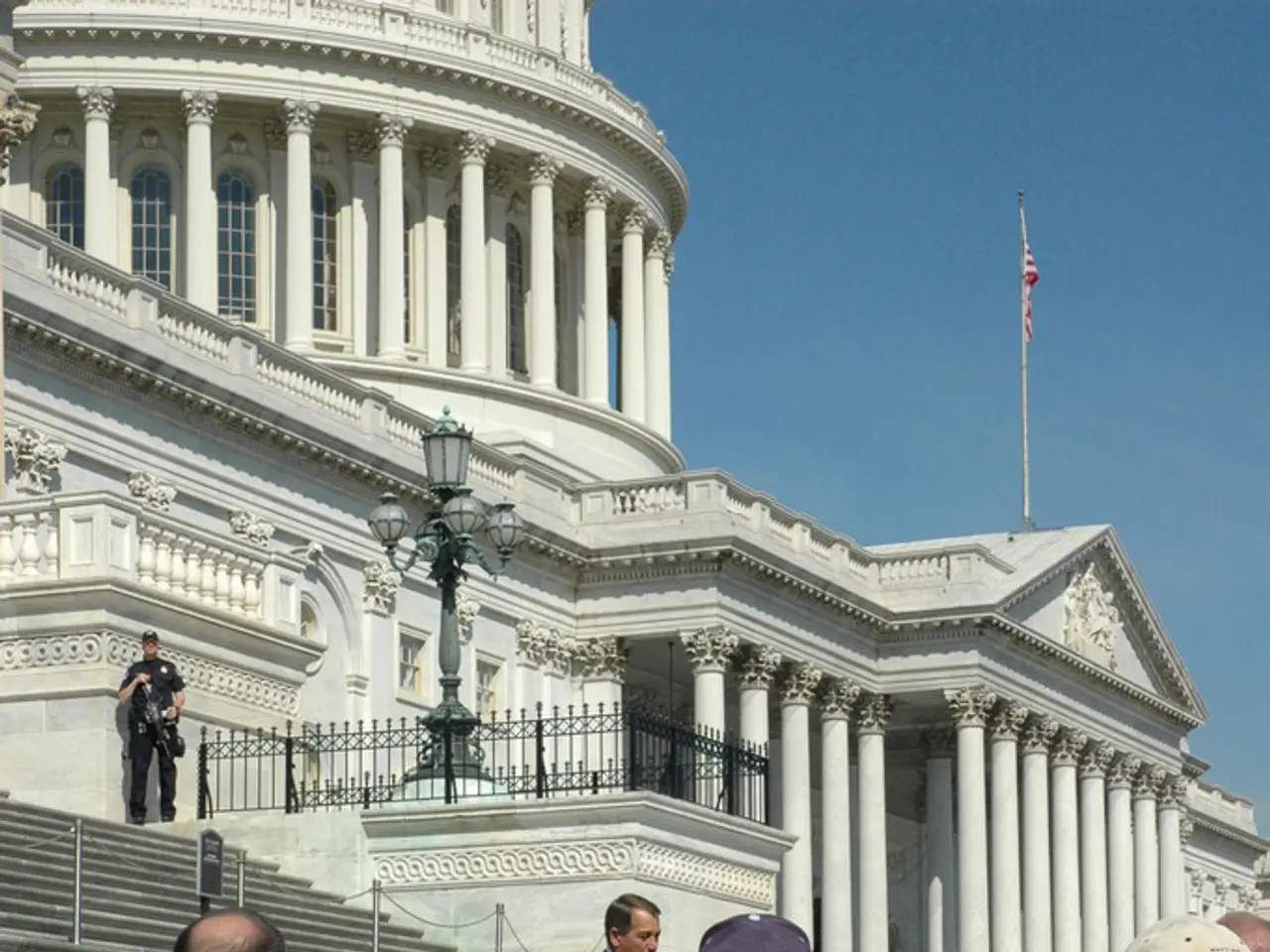Historic trial commences concerning Trump's deployment of U.S. military forces for law enforcement duties in Los Angeles.
In a significant legal battle, the trial over California's challenge against President Donald Trump's deployment of National Guard forces in Los Angeles concluded on August 14, 2025. The lawsuit, filed by California Governor Gavin Newsom and Attorney General Rob Bonta, argues that the deployment violated the Posse Comitatus Act, a 19th century law that generally prohibits the military from engaging in domestic law enforcement activities [1][3][5].
The trial, presided over by San Francisco-based U.S. District Judge Charles Breyer, aimed to determine if the government violated this law when Trump deployed troops in June. California contended that the deployment was unprecedented, politically motivated, and lacked approval from the state’s governor and local law enforcement [1][2]. The Department of Justice, on the other hand, defended the deployment, arguing that the Posse Comitatus Act does not apply and that there is no legal precedent for the lawsuit or injunctive relief under the act [1].
As of the trial's conclusion, arguments were made over the application of the Posse Comitatus Act and whether California suffered harm warranting the lawsuit. Attorney General Bonta issued a statement, but no final judicial decision or injunction has been reported yet, leaving the legal challenge's outcome pending [1][5].
Trump's decision to send troops into Los Angeles sparked a national debate about the use of the military on U.S. soil and inflamed political tensions in the second-most-populous U.S. city. The President's efforts to fight crime will reportedly extend beyond Washington, with plans to deploy troops in cities such as Chicago, Los Angeles, New York, and Baltimore [6].
However, the trial will have limited impact on Trump's plan to deploy hundreds of National Guard troops to Washington. Unlike in California and other states, the President directly controls the National Guard in Washington [7]. Despite statistics showing that violent crime in Washington hit a 30-year low in 2024, Trump plans to deploy troops as part of a crackdown on violent crime [8].
During the trial, California and the state's Democratic governor asked Judge Breyer to prohibit the troops from directly participating in domestic law enforcement activities. They claim the National Guard is accompanying ICE agents on raids and assisting in arrests, which they say violates the Posse Comitatus Act of 1878 and other laws that forbid the U.S. military from taking part in civilian law enforcement [4]. The administration denies these allegations and plans to show that the troops were protecting federal property and U.S. Immigration and Customs Enforcement (ICE) agents [4].
Many troops have been withdrawn, but 300 National Guard members are still reportedly going on immigration raids and restricting civilian movements in the state [9]. The landmark trial regarding the use of National Guard forces by Trump's administration began on Monday [8]. The outcome of the trial remains uncertain, with no final decision or injunction reported as of August 14, 2025.
[1] https://www.cnn.com/2025/08/14/politics/california-national-guard-trial-concludes/index.html [2] https://www.nytimes.com/2025/08/14/us/california-national-guard-trial.html [3] https://www.washingtonpost.com/politics/2025/08/14/california-national-guard-trial/ [4] https://www.usatoday.com/story/news/politics/2025/08/14/california-national-guard-trial-begins/ [5] https://www.reuters.com/article/us-usa-california-trial-idUSKBN25S24R [6] https://www.politico.com/story/2025/08/14/trump-national-guard-deployment-cities-492023 [7] https://www.axios.com/2025/08/14/trump-national-guard-washington-dc-deployment [8] https://www.nbcnews.com/politics/donald-trump/trump-plans-deploy-troops-washington-crackdown-violent-crime-n1281961 [9] https://www.cbsnews.com/news/california-national-guard-troops-immigration-raids-restricting-civilian-movements/
- The trial, presided over by Judge Breyer, aimed to ascertain if the government violated the Posse Comitatus Act during President Trump's deployment of National Guard troops in Los Angeles.
- Attorney General Bonta and California's Democratic governor asked Judge Breyer to prohibit the troops from participating in domestic law enforcement activities, alleging violations of the Posse Comitatus Act and other laws.
- The administration defended the deployment, maintaining that the Posse Comitatus Act does not apply and there is no legal precedent for the lawsuit or injunctive relief under the act.
- The trial's conclusion did not reveal a final judicial decision or injunction, leaving the legal challenge's outcome uncertain as of August 14, 2025.
- Despite the ongoing trial, Trump plans to extend his efforts to fight crime by deploying troops in cities such as Chicago, Los Angeles, New York, and Baltimore, and he has announced plans to deploy hundreds of National Guard troops to Washington directly.








